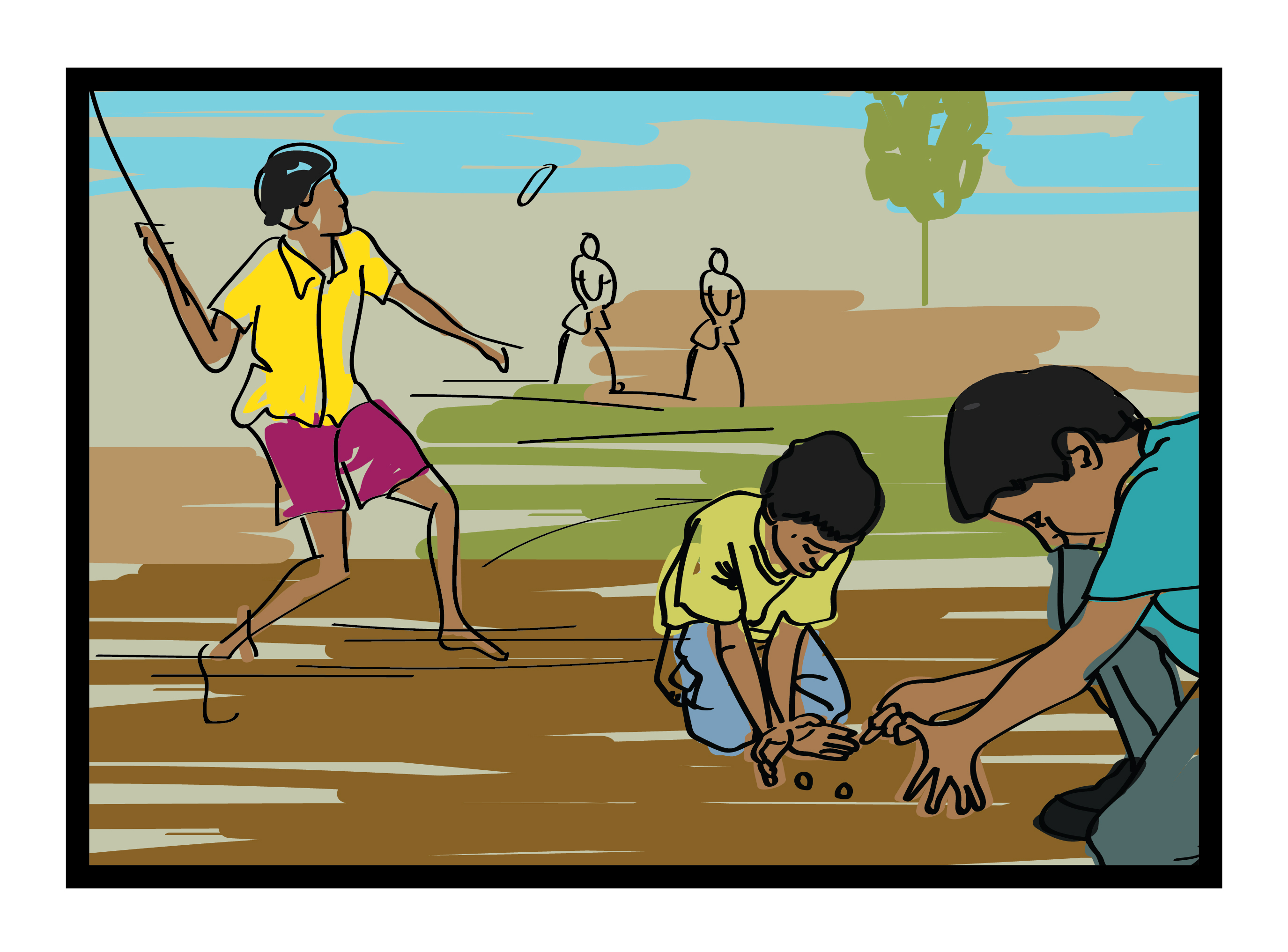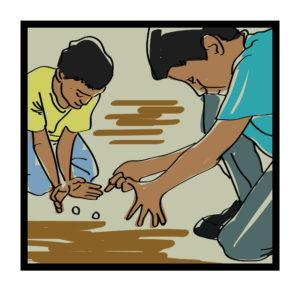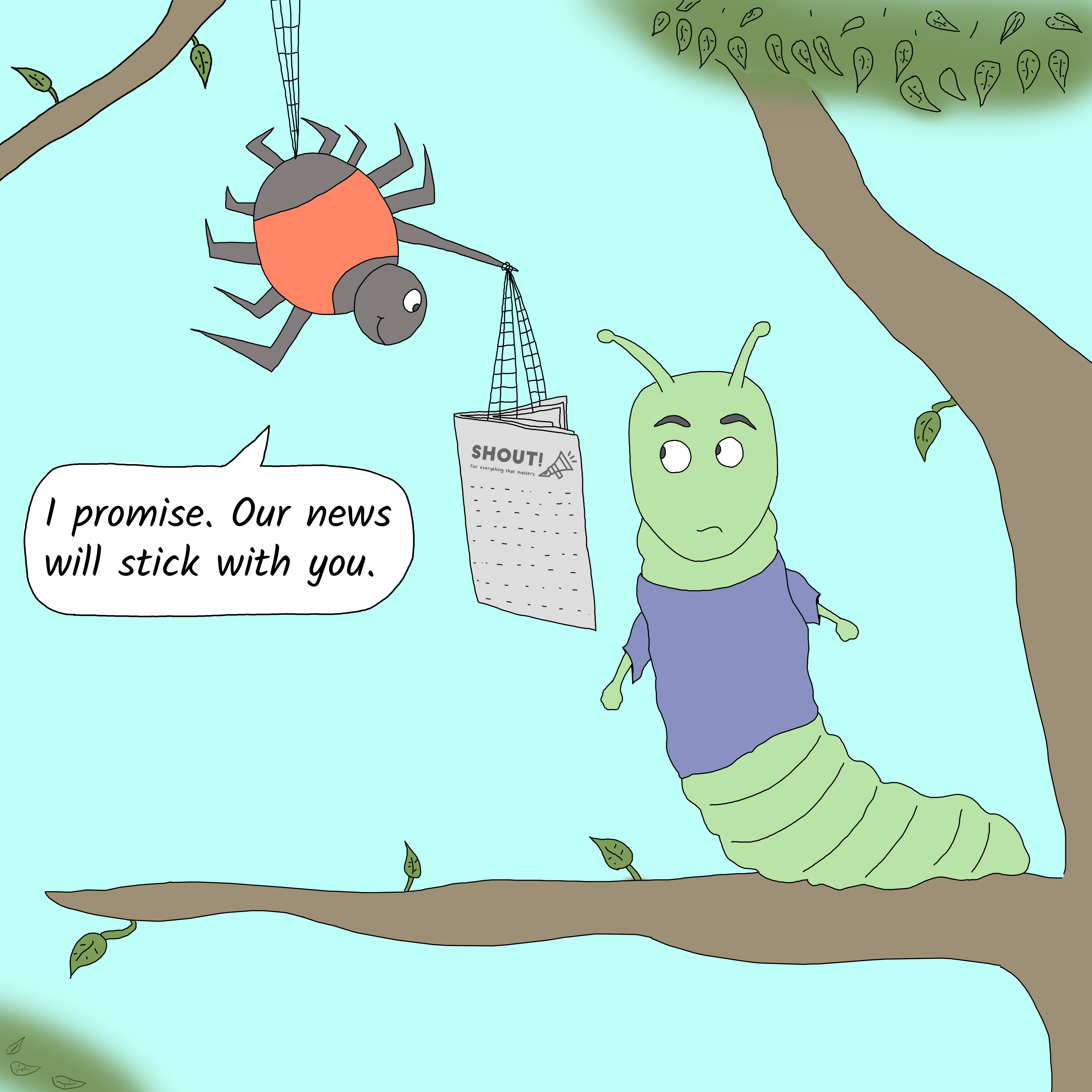I wish I’d grown up in a village like Neelima did. The Coach spotted her long jump prowess at a State Athletic Meet and insisted she move to the city to train better. I doubt that had anything to do with better infrastructure though. Better structure, yes. Guidance, direction, whatever-you-may-call-it. She leaps like a leopard. The kind of strength only a hardy, rural life could afford. That reason notwithstanding, there’s more that makes me wish I’d grown up in a village just like her.
After training one evening, we stuck around for a bit, stargazing, when she nostalgically recalled, at random, “In Latur”, she said, “we played Lagori and Gilli Danda and Kancha so often. I haven’t seen anyone play them around here.” The gang was totally thrown off. What were these? Why haven’t we heard of them before? Too embarrassed to communicate our bafflement and curious all the same, The Coach read our faces and tried to clear up the fog, “Urbanization in India has resulted in the slow but sure death of tradition. Our villages remain the last cradle of an authentic Indian existence. It’s where some of our age-old games have survived. Lagori, Gilli Danda, Kancha, Cowrie, Saakli, Ghera, Lattu – they’re typically every villager’s childhood. In fact, adults play them too.”
“They’ve probably only played a little bit of Langdi and Chibiddi (hopscotch) and Kho Kho and Kabaddi.”, the Assistant Coach supposed, in response to The Boss.
[freemium]“We played Chor Police!”, Anita burst out. The Indian equivalent of an amalgam of Hide and Seek and Catch and Cook. “And Lock and Key!” yelled Vikram, turning to us, “You remember that! The Denner runs after you. When tagged, you’re locked into a statue…” “But you have to call out “Lock”!” we all roared back, cracking up at that crucial detail in our childhood handbook. “Yes! Yes! And if a free player tags you saying “key”, you can run free again.”, Vikram completed the story, “The Denner isn’t done until everyone’s locked”.
“We played it too. Back in the village, we called it Vish Amrit (Poison and Cure).”, Neelima revealed.
“And Blind Man’s Buff!” added Anita. Going after your peers, blindfolded, within a fixed periphery.
“Thank god for that! Some redemption.” The Boss shot back.
“Teach us then! You only ever make us workout so hard!”, we all cried out, in chorus.
“Oh these games are hard work too! They’ll test your co-ordination, judgment, concentration, speed, balance, power, agility, reflexes, target orientation, and presence of mind.”, explained The Boss, almost threateningly (it was the only way to get things across to our raucous lot).
“Won’t it be to our advantage then?”, the Baby Boss enquired, “to teach them these village
wonders. For versatility. We’re supposed to be working the whole lot of those aspects anyway. We might just sharpen them.”
“Of course!” confirmed the Boss. “But we only play when we aren’t training. Deal?”
“Deal!” we all yelled back.
“And we’re going to be cautious! No injuries, please! We can’t entertain them.”, the Baby Boss made sure to include.
“Right Sir!”, we came back, rowdier this time.
 Neelima was most delighted. After all, she was getting a piece of her life in the village back. She missed it so much. Who wouldn’t?! With so many games to play…who wouldn’t?!
Neelima was most delighted. After all, she was getting a piece of her life in the village back. She missed it so much. Who wouldn’t?! With so many games to play…who wouldn’t?!
We played Lagori that night. Seven Tiles, we call it now. There’s two teams. A ball. And a pile of 7 flat stones. One member from the first team throws the ball at the tiles. They disperse. It’s her/his team’s job to gather all the tiles, one on top of the other without being hit by the opposing team. If you get hit with the ball thrown at you by the opponents, you’re out and your team proceeds to rebuild the pile without you. One team builds. The other must prevent it from doing so by hitting its players with the ball. You aim, you scramble, you dodge, you knock, you chuck, you trick. May be you rebuild and win. May be you get socked and lose. Oh! We raised hell!
Over the next few days we learnt the others…
Gilli Danda, we discovered, was a more rustic version of cricket. Without a ball though. Two
sticks. One big. One small. A Danda, the larger one, is used to toss the smaller one, a Gilli, up in the air by hitting its raised end. When the Gilli flips into the air, the player strikes it with the Danda to send it as far out as she/he possibly can. After striking the Gilli, the player is required to run and touch a point, agreed upon earlier, before the Gilli is retrieved by the opponent, who takes off in search of it from the very same spot it was struck at. Since we didn’t need large numbers on each side for this one, we played in pairs. Didn’t want anyone standing around, fielding – static and dormant.
In Kancha, a single marble is launched by a spring technique, using the fingers. It was like
bowling with marbles! Only, you never collect bowling pins once you’ve bumped them off. If
marble collides with marble, you do however, get to collect it. Ultimately, the player with the most marbles wins! Every so often, you ‘lose your marbles’ too. We sure did!
I think Saakli’s our favourite. The one where you form a human chain. We loved the chasing, in cahoots. How we became many from one, hunting the last one down in a collective onslaught! So, the Denner starts off after someone. When the latter is tapped or caught, they join forces and catch another as a duo, then a trio and so on and so forth. We had to keep up with each other, at the same pace, stride for stride. Until the chain was complete. Who ever thought being chained meant letting loose?!
In Lattu, we spun tops. In Cowrie, we flung shells. The scoring systems of both are fairly straightforward. Hinging on how long the top spins; how the shell lands. And in Ghera, we balance a wheel – a tube or tyre, with a baton of sorts. Keep it wheeling as we roll with it. Clumsily, at times. And every so often, sprinting wildly with it. Joy. Bliss. Reckless abandon.
We were children again.
The games we didn’t play…
We play them now!
Indeed, this is the important stuff. It’s serious business, this play.
[freemium]
DISCLAIMER: The content on this website is merely an opinion and not intended to malign any religion, ethnic group, organisation, company or individual. Nothing contained herein shall to any extent substitute for the independent investigations and sound judgment of the reader. While we have made every attempt to ensure the accuracy and completeness of the content contained herein, no warranty or guarantee, express or implied, is given with respect to the same. The SHOUT! Network is neither liable nor responsible to any person or entity for any errors or omissions, or for any offense caused from such content.
In addition to the above, thoughts and opinions change from time to time… we consider this a necessary consequence of having an open mind. This website is intended to provide a semi-permanent point in time snapshot and manifestation of the various topics running around our brains, and as such any thoughts and opinions expressed within out-of-date posts may not be the same, or even similar, to those we may hold today.
Feel free to challenge us, disagree with us, or tell us we’re completely nuts in the comments section of each piece. The SHOUT! Network reserves the right to delete any comment for any reason whatsoever (abusive, profane, rude, or anonymous comments) – but do SHOUT! with us, if you will.














